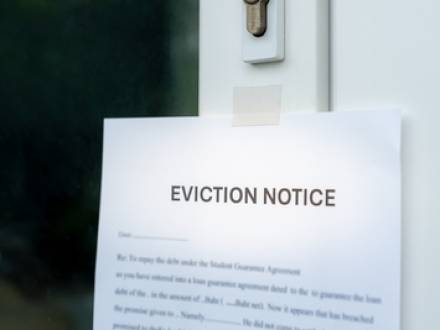Removing Violent Tenants Without Legal Backlash in IL
 While Illinois landlords can face many issues with tenants, fights or violence between tenants can result in a legal double bind – a landlord who acts too slowly risks a negligence claim. At the same time, acting too quickly can risk violating tenant protections. Eviction for criminal or threatening conduct is allowed under the Illinois Forcible Entry and Detainer Act (735 ILCS 5/9-101 et seq) and the Chicago Residential Landlord and Tenant Ordinance (RLTO).
While Illinois landlords can face many issues with tenants, fights or violence between tenants can result in a legal double bind – a landlord who acts too slowly risks a negligence claim. At the same time, acting too quickly can risk violating tenant protections. Eviction for criminal or threatening conduct is allowed under the Illinois Forcible Entry and Detainer Act (735 ILCS 5/9-101 et seq) and the Chicago Residential Landlord and Tenant Ordinance (RLTO).
Landlords must follow strict notice, documentation, and due-process requirements. If you are a landlord facing such a situation, it can be highly beneficial to speak to a knowledgeable DuPage County, IL landlord eviction attorney. Doing so can minimize your exposure to retaliation or discrimination claims while handling a potentially volatile situation.
When Illinois Tenant-on-Tenant Violence Triggers Eviction
Most Illinois leases specifically prohibit disorderly or criminal conduct, which includes violent, harassing, or threatening behavior directed at other tenants. These behaviors typically constitute a material breach of contract. Under 735 ILCS 5/9-120, landlords may terminate for criminal activity "on or near the premises."
This applies whether the act of violence occurred in a common area or was directed at another tenant in either of the tenant’s apartments or condos. Illinois courts recognize that landlords have a duty to maintain safe premises for all tenants. As long as the laws are strictly followed, eviction proceedings can be implemented.
Notice Requirements and Proper Documentation for Illinois Tenant-on-Tenant Violence
There is a five-day notice for non-payment, which is unrelated to the violent behavior of a tenant, and a ten-day notice for general lease violations. If a criminal act threatens the health or safety of other tenants, the law allows for immediate termination.
It is essential for landlords to have thorough documentation of the incident that led to termination, including police reports, incident statements, photos, security footage, and witness affidavits. Written complaints from victims or neighboring tenants can also support the eviction case.
Careful and comprehensive internal management notes are essential to show the investigation and response timeline. The tenant who committed a violent act should receive the notice of eviction through certified mail, personal service, or posting as allowed by statute and the lease.
Landlords must maintain neutrality in this situation to avoid the appearance of "siding" with the aggressor or the victim before all facts are confirmed. Cooperation with the police or a protective order enforcement is a given, but the tenant's privacy must not be violated in the process. To avoid any hint of retaliation, every communication must be fully documented.
When a Court Hearing is Necessary for Criminal or Dangerous Conduct by a Tenant
For clearly criminal or dangerous conduct by a tenant, the landlord must file a complaint in the county where the property is located, including an incident summary, police report, and the lease clause that has been violated. If there is a verifiable ongoing threat, a judge may grant a faster hearing. The landlord always bears the burden of proof to demonstrate that a tenant’s actions materially disrupted the rights of other tenants. Under the Chicago RLTO, written notice and documentation are required before filing, and if proven, violent incidents may qualify as "non-curable."
Defending Against Retaliation or Discrimination Claims When Evicting a Violent Tenant
When a tenant receives an eviction notification, he or she may allege retaliation for prior complaints to the landlord or assert discrimination. The landlord must show objective, documented safety concerns, as well as demonstrate a uniform application of rules to all tenants, across the board. Any pattern of misconduct, prior warnings, or incident reports should be documented and referenced.
Contact a Naperville, IL Landlord Eviction Lawyer
If you are a landlord facing tenant-on-tenant violence or other violent behaviors from a tenant, speak to a knowledgeable DuPage County landlord defense lawyer from Appelman Law LLC before taking any steps that result in a misstep. Attorney Appelman is committed to providing local landlords with the highest quality representation. Call 630-717-7801 to schedule your free consultation.





